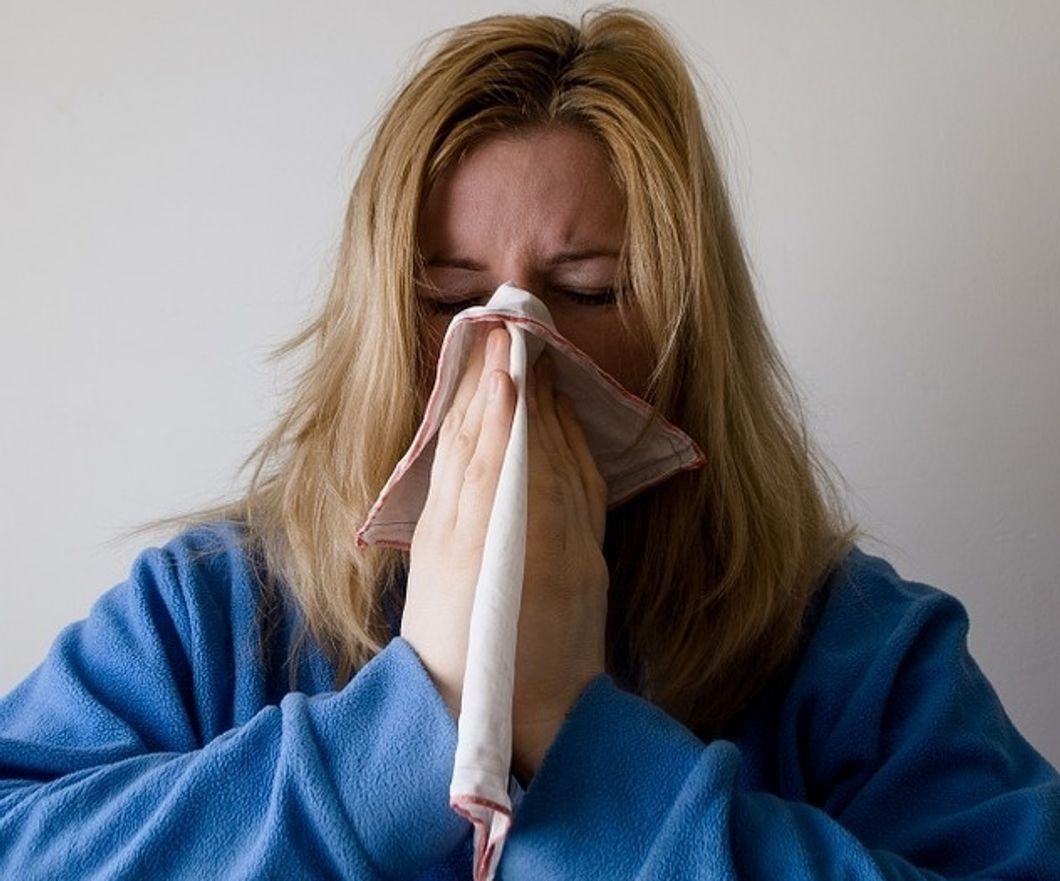Raise your hand if you have felt personally victimized by the cold season in college.
If you're on a college campus, it feels like either you or someone you know is in an endless cycle of sore throats, coughing, and fatigue. We take DayQuil, Nyquil, Tylenol, and Advil to ease our symptoms, but where is all of this coming from? And why does it seem to affect college students so greatly?
It may not start with a specific illness "going around," and might have much more to do with the S-word. Stress. We all claim its symptoms, but we still seem to excuse it from the blame of our poor health. Something that psychologists point to is called "burnout": a state of chronic stress that results in detachment, feelings of lack of achievement, and physical and emotional exhaustion.
Some specific symptoms include chronic fatigue (lack of energy), insomnia, forgetfulness/inability to pay attention, anxiety, loss of appetite, and increased illness. That last factor is key, along with physical symptoms such as chest pain, dizziness, fainting, and headaches, your immune system is weakened by stress. This makes you more susceptible to infections, colds, flu, and other immune-related problems.
Do not take this article as an excuse to not see a doctor. From personal experience, I know many students who feel most or all of these symptoms and choose to change nothing about their lifestyles to do something about it. All that I am suggesting is to take the first step of changing some habits that many college students fall into and can't seem to get themselves out of. Here are three rules to live by to prevent this unnecessary sick feeling.
1. You have to sleep
2. You have to eat
3. You have to drink water
This means eliminating (or at least reducing) the number of all-nighters you pull, not skipping meals, and carrying a bottle of water around.
By sticking to this mantra, you are solving a lot of problems before they reach the surface.
















